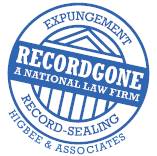Improvement to New Jersey Expungement Law Pending Approval By Governor
On December 17, 2015 the New Jersey Assembly passed a bill designed to improve the expungement law in New Jersey. The New Jersey Senate had previously approved Bill A206 in September. The bill, which reduces waiting periods for all classes of offenses, removes the filing fee for those seeking expungement of a dismissed charge, mandates automatic expungement of certain cases, and increases the number of cases eligible, is now pending final approval by New Jersey Governor Chris Christie.
Effect of A206 on New Jersey Conviction Expungement
If enacted, the bill will reduce the statutory waiting period for an expungement of an indictable offense conviction from 10 years to five years. The waiting period starts running at the date of the last conviction, payment of fine, satisfactory completion of probation or parole, or release from incarceration, whichever is later.
Under current law, an individual with an indictable offense conviction is not eligible to have any additional lower level (disorderly persons or petty disorderly persons offenses) expunged at the time the indictable. This aspect of the law has always been counterintuitive; a person could have a felony expunged but not a minor offense that may also be on their record. However, with this bill an individual petitioning for expungement of an indictable offense could also request the court expunge two disorderly or petty disorderly persons convictions, as well.
The waiting period for a disorderly persons or petty disorderly persons conviction would be reduced from five years to three years if A206 were signed into law. This bill would also allow an individual to petition for an expungement of a disorderly persons offense prior to the three-year passage if the waiting period had otherwise been satisfied except for the payment of fines. In those cases, if petitioner can show that they complied with a payment plan or could not pay due to compelling circumstances, the court can grant expungement prior to the three years having expired.
Expungement of Dismissed Cases Under the Proposed Law
A major change that this bill will make to the expungement law is regarding the expungement of arrest records (cases that did not result in a conviction). If this new law is passed, the court will now be required at the time of dismissal, acquittal or discharge to order the expungement of all records relating to the arrest. If the case was disposed of in the municipal court, the statute requires the municipal court, upon request, provide the person with the documentation needed to request expungement from the Superior Court. The Superior Court upon receipt of the application shall order the expungement.
With these changes to the law, expungement of many dismissed charges will occur automatically or with very little resistance from the court and/or prosecutor. If the expungement of an arrest record does not occur automatically (as will be the case for charges that were disposed of before this law goes into effect), an individual may petition the court for expungement. There will no longer be a filing fee for these expungement requests for cases that did not result in a conviction.
Drug Court Special Probation Expungement
The bill also makes changes to the section of New Jersey law governing Drug Court. Those people who complete a term of special probation, through Drug Court, would be eligible to have their records expunged by the court. Following completion of special probation, a judge could order the expungement of all records and information relating to all prior arrests and convictions (not limited to the charge for which special probation was given). However, an individual would not be eligible for expungement if his or her record included a conviction for an offense that bars expungement under NJ 2C:52-2(b), which includes many serious, violent crimes.
Impact of this Bill and What’s Next
This bill would provide great improvement to New Jersey’s expungement law. It recognizes the importance of expungement in allowing prior offenders to reenter society. Ten years is an extremely long time to be precluded from obtaining quality employment. With a decrease in the waiting periods and the implementation of an automatic expungement of dismissed charges, the New Jersey expungement law would be vastly improved if this legislation were to be enacted.
It is expected that Governor Chris Christie will act on the bill by the end of January. If signed, the law will go into effect 90 days following final passage. We will update our website as needed to reflect any changes to NJ’s expungement laws.



